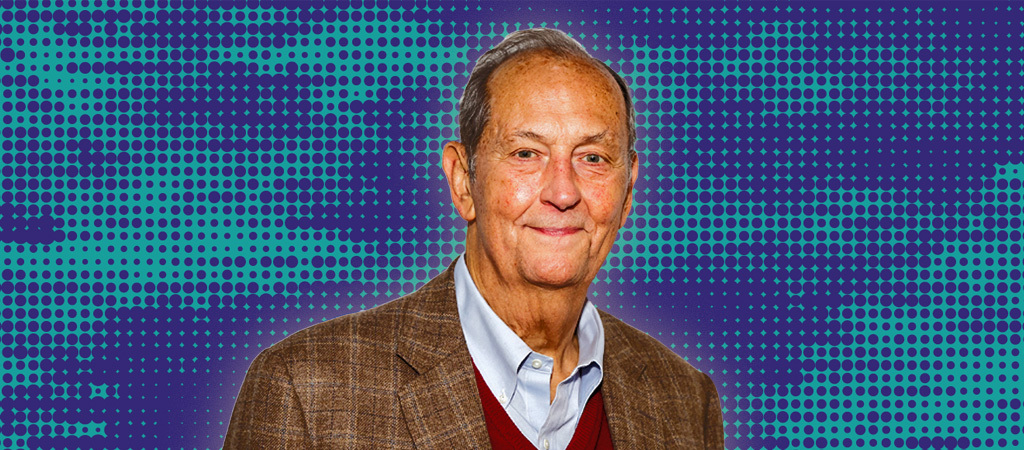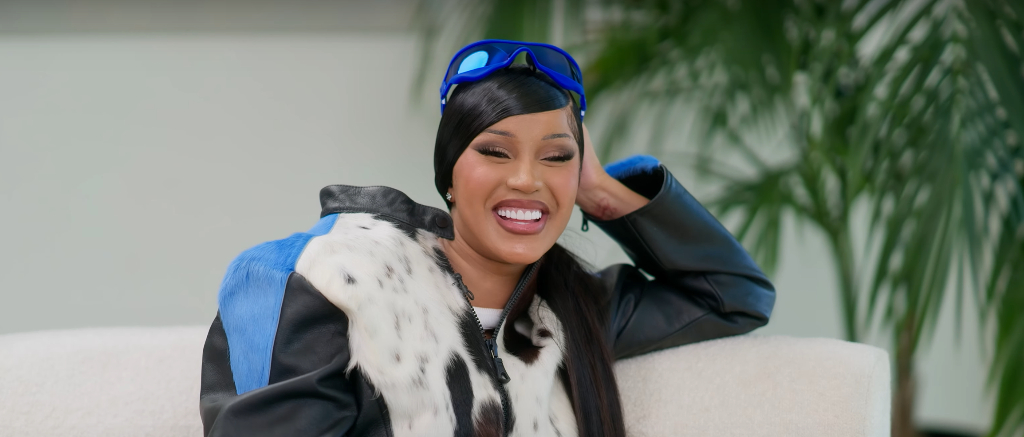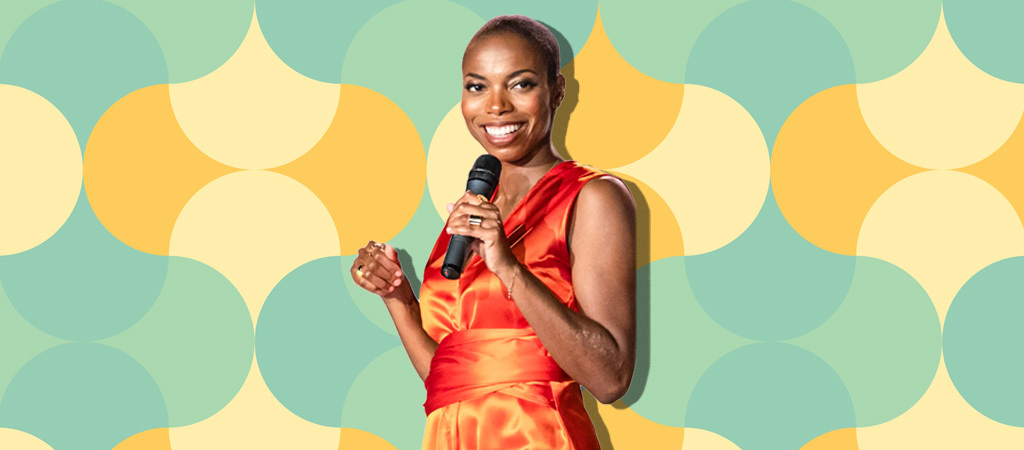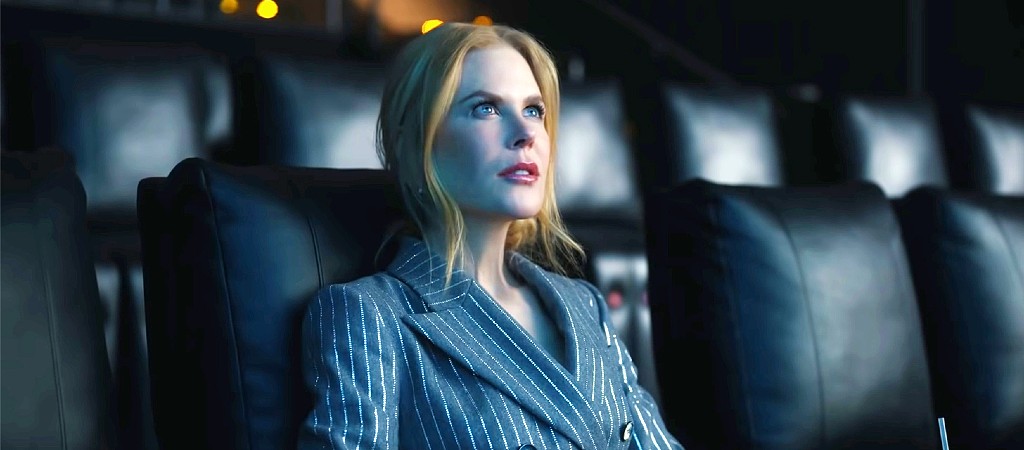
If you lived in New York City in 2020 or 2021 and you were in Central Park at the right time of day, there’s a chance you saw Bill Bradley walking and talking. Bradley, the NBA champion-turned-U.S. Senator, is at the center of what he calls his performative autobiography, Bill Bradley: Rolling Along, which currently lives on Max.
It’s a 90-minute one-man show about one of the more compelling characters in American history. There aren’t a lot of Americans who have won an NBA championship, which Bradley did with the New York Knicks in 1970 and 1973 en route to becoming a Hall of Fame inductee. There aren’t a lot of Americans who served in the United States Senate, which Bradley, a Rhodes Scholar who attended Princeton and Oxford, did from 1979-1997. There aren’t a lot of Americans who ran for president — Bradley attempted to do that in 2000, but fell short of the Democratic Party’s nomination, which went to Al Gore.
The fact that a person from a small city in Missouri did all of these things, unsurprisingly, makes for a pretty interesting hook. After donating his political papers to Princeton, Bradley got a chance to tell some stories to an audience, which piqued the interest of legendary Broadway producer Manny Azenberg. It beget a lengthy process where Bradley worked on the performance, then took it to cities across the country and would seek out feedback.
“And then COVID hit,” Bradley tells Dime. “And it actually allowed me to go deeper into the material. And at the end of COVID, I realized I wasn’t going to go do this on stage all over. And so I’m going to rent a theater for four nights and have five cameras, and make it into a film, and that’s how it happened. And I realized that I’ve always had a performative element in what I did, whether it’s basketball, or politics, and so [this is] the kind of natural evolution of trying my hand at this.”
Bradley got to work memorizing the show completely, which is where walking around Central Park comes into the occasion. He’d do a little bit of the show in his study, then he’d head out into the park. He’d get to specific places — the Poet’s Walk, the Great Lawn, etc. — before he’d forget his lines, and he’d figure out what he’d need to work on next time. And when he eventually did get it all down, well, comparing things to basketball is pretty easy for Bradley, so he drew that parallel here.
“When I finished, when I got it memorized, I realized that I had to also … like shooting baskets, you got to shoot every day to stay sharp,” Bradley says. “And so I’d do it every day in the rec room of the apartment building we lived in in Manhattan.”
The result is a comprehensive look at Bradley’s life from the person who would know it best. It’s as interesting as it is powerfully earnest, the sort of labor of love that can only come from a person who believes it’s important that this story gets told. And if Bradley has his way, people will watch this and take one thing from it: There is a common humanity that we all experience, and although there are many things that divide us, that is powerful enough to bring people together for a common good.
Recently, Dime caught up with Bradley to discuss Rolling Along, how his basketball career informed his politics, what he’s learned about America over the course of his life, Joe Biden, and much more.
I found the whole thing compelling. But one thing I really want to focus on is the way that your basketball career, in particular, informed your politics. To talk about compelling things, I found the section about the distrust that your Black teammates had for white Americans in particular to be super compelling. So, how did your time in the NBA, and even dating before that, really inform the political career that you would go on to have?
Well, let me say, before I get into that: I just described to you how I did it. But the question is, why did I do it? And I did it because I thought that if I told my story candidly, it would encourage other people to tell their stories. And in the process of those stories, we discover a common humanity. And that’s what we need in our country today, we need an emphasis on our common humanity — not what divides us, but our common humanity. And so my hope, I wanted to try to generate a little healing in the process.
So, in terms of the basketball, the basketball was fundamental. It’s been fundamental in my life. You can say my mother sitting at the piano as I was practicing piano and hating it was discipline. But the real discipline came when I was 14, went to “Easy” Ed Macauley’s basketball camp. He’s a pro for the Hawks, and he said, “Remember, if you’re not practicing, somebody, somewhere is practicing, and if you were to meet, given roughly equal ability, he’s going to win.” I thought, that makes a lot of sense, so I got to practice. And that was the origin of my workaholism in basketball from 14 to, I don’t know, probably 20, or until I was a pro. I would do three hours a day, five hours on weekends — certainly in high school, I did that.
It formed the whole approach I had to life through basketball, and then, of course, with the Knicks, I learned a lot more from my Black teammates than they learned from me, and I describe what I learned in the course of that time, and how their friendship became central to what I value in life. I heard things that I did not know — of course, I grew up in Missouri, part of that was sometimes segregated, I had a very influential African-American male who taught me how to box when I was a little kid, nine or 10 years old.
But I wasn’t living in a Black world. And then when I got to the NBA, I was living in a Black world, and I heard things. Dick Barnett tells me about his Tennessee State team winning the national title and going back to Nashville and going from the airport to a lunch counter sit-in, and to have the discipline not to respond when white people spit on him. Or the story of the African-American rookie from Mississippi who says he’ll always vote, because for 150 years, nobody in his family had a right to vote. Or Cazzie Russell driving down from Ann Arbor where he went to Michigan to visit for a while, to a practice in Detroit and being late and Red [Holzman] fines him because when you’re late, you’re fined. And 10 minutes into the practice, he’s in a fight with a white rookie. And Willis [Reed] steps in to break it up, and Cazzie snaps, “Uncle Tom.” And Willis says, “Uncle Tom? Well this is Uncle Tom Well is gonna do some ass whooping if you do that again.” But the point is, only later did I discover that his lateness and his foul mood came from being stopped by Michigan state police on the drive down.
So, I had the experience of living and I saw my African-American teammates’ distrust and suspicion of white America, saw how far we had to go before our racial reality matched our ideals. And I realized how much I would never know, because I’m not African-American.
That actually leads into something I wanted to ask, which is, you use your Knicks teams as an example of how to push back against division in America. And I want to read the exact quote here: “Take responsibility for yourself, respect your fellow human being, disagree with them honestly and civilly, enjoy their humanity, and never look down on people you don’t understand.” What in your eyes, as someone who has a good perspective on these things, has made us get away from that?
You just read the key lines of the film, particularly my grandmother’s line, which is “never look down on people you don’t understand.” And that occurs three times in the film, and all of those those things typified our Knick teams.
What did we get away from? How did we get away from it? Well, we allowed our differences to separate us in ways that, in some cases, became more than our common humanity. And we have to get back to that common humanity that I experienced on the Knicks, that is expressed in those words, and that we still have in the country today, but our politics is so brittle and so loud and so divisive that it pulls people away from their common humanity into a kind of tribal, party atmosphere. And that’s destructive in the long run to that which would unite us as a country.
It was heartbreaking to me to hear some of the things you discussed his issues in this — abortion, race relations, money in politics, a more just and equitable economy — that are still really prevalent issues today.
Yeah, yeah.
Correct me if I’m wrong, but I thought you could hear in your voice that those are still heartbreaking things to you.
Well, yeah, I think they are. And the difference between being a basketball player and a politician is a basketball player plays their game, plays a season, and becomes champion, it lasts about 48 hours. But that is it, you’ve done it, and you now are at the top.
Politics, you’re never at the top. Politics, there will always be problems related to the economy, to education, to healthcare, to whatever. And therefore, it’s a continuum, and the continuum is what is important in politics, whereas the peak is what’s important in sports. And so, I think that these issues will always be with us in different forms, because they’re human issues, and politics is, in its best sense, a human endeavor, where things happen because people who disagree with each other find common ground, and compromise, and move our collective humanity a few inches forward. And that’s what appealed to me about it.
And you have answered this to several extents here. But how do you hope this film, obviously doesn’t single-handedly solve those issues — it would be great if that could happen — but maybe refocuses how we approach them?
We did a focus group after this, after I had the film. And the guy who did the focus group was very experienced doing documentaries and feature film focus groups. So he said to the people after we watched it — I’d watch them watching it, which is a sobering event [laughs], someone’s eating while they’re watching, or drinking.
He said, “What do you think this was about?” And they said, “It’s about all of us. It’s about love of country, love of the game of basketball. It’s about forgiveness, perseverance. It’s about triumph and loss and sadness and joy. It’s about life.” And that’s what I hope people see, it’s a film about life, and expressing it in the form of a performative autobiography. You encourage other people to tell their stories, and you know, when people start telling their stories about their lives, we’re going to find a whole lot of common ground that is not allowed in political language. Because political language, by definition, separates, whereas human language, by definition, unites. And that’s what I want this film to do.
One line that I liked in the doc was, “I wanted to know America like I once knew the seams of a basketball.” And I just want to know, what did you learn about America as a politician that you didn’t know or didn’t really understand going into that chapter of your life?
Well, I’ll give you an example. For probably eight years, at least, I was the chairman of the Water and Power Subcommittee of the Energy and Natural Resources Committee. That kind of sounds dry, right? And I don’t mean that as a pun. But that subcommittee had jurisdiction over water in 20 Western states that had very little water, and therefore depended on irrigation. I didn’t know anything about that! I was from Missouri, on the Mississippi River, and New Jersey, on the Atlantic Ocean. What did I know about what it is to live in a dry land?
And so I learned those kinds of things about the country, and then I learned about people. I’d go on what I call these American journeys, I describe where I go for two days with a wheat farmer in North Dakota, or two days in the Cajun country, or on the Mexican border, or a steel mill in Ohio, or whatever. And I learned something in each of those places about the place and the circumstance, and more importantly, the lives of people living in those places trying to have a decent life. And therefore, my view of America became much more enriched. And I was, I don’t know if you’d say insatiable — paralleling this, I didn’t talk about in the film, I would read stuff, Wallace Stegner on the west, or whatever.
The combination of all of that was my attempt to know the country like I knew the seams of a basketball. That was my attempt to absorb the country — Whitman says that better than me, but I’m not pretending to be Whitman. But that’s kind of what my inspiration was. He says, I contain multitudes. Well, I wanted to be able to understand what it was to be a wheat farmer in South Dakota, or what it was to be a crawfisherman in the bayous of Louisiana. I wanted to understand what it was to live in Appalachia, in western North Carolina.
And I thought that if I knew that, I would know the kinds of pressures and demands that were put on Senators from those areas, and by having that level of empathy, I’d be able to better reach them and get compromise on things that divide us. And it’s basic respect. When the Princeton assistant Episcopal chaplain made fun of me, says “he’s one of those.” Well, I felt that. I feel how evangelicals feel, because I experienced that. People who are not Evangelical make fun of them, and I respect them. I respect everybody. And the point is, I wanted to get back to a point where I internalized it, and that’s what I tried to do.
And to go back to that main overarching philosophy of the doc, I think it’s something that everybody knows, but I would assume — correct me if I’m wrong — but going through that, it really hammers home that, at the end of the day, everyone wants to be able to make a good honest living, have a roof over their head, have a few meals a day, and take care of themselves.
Absolutely. That’s the basics of life, and over time, politics at its best has helped people achieve that. I point out that there was a time where the elderly didn’t have health care or a pension, the Great Lakes were industrial sewers. And politics changed them, and that’s the kind of things I hoped to do in getting in politics.
Everyday people, in my experience, tend to just have an inherent distrust for the elites. And I don’t know if there is someone on the surface that fits that billing more than the Ivy educated Rhodes Scholar professional athlete who was a U.S. Senator and ran for President. You focus on this in the film, but how did the lessons that were instilled in you from the time you were a young man in Missouri help you break down those barriers that, again, just kind of inherently come when a person meets a Senator, or a pro athlete, etc.?
Treating people with respect and with curiosity about their lives. I love hearing people’s stories, I love identifying with their travails or with their moments of great happiness. For me, being alive is being alive, right? And that means you have to have sensitivities to other people’s lives, and in the process, you derive a deeper life yourself.
Why do you think we don’t see more professional athletes get into the world of politics? We’ve had you, Jack Kemp, Steve Largent, plenty of others, but I’ve always wondered why the people who see all of America, get this great media training, meet so many different people, all these sorts of things are prime for entering that world once their playing days are over.
Why are there so few politicians, why are there so few people in politics in the country generally? Life is politics, in a way.
But you mean running for office. Why don’t we get more running for office? Well, if you take a look, there are probably more lawyers who run for office than athletes, but there have been a share of athletes. How many mechanics have run? How many preachers have run? There have been some, but to your question, I don’t know why there’s not more. I mean, Jack Kemp certainly was there, Steve Largent. Tom McMillen, I played with him on the Knicks, he became a congressman. There are any number of other people who were in sports.
To me, the relevant question is not what is your background, but what kind of person are you as a colleague in the Senate and in the House. And sometimes, your background helps you, sometimes your background, you got to overcome or whatever. When I got there the first time, for example, I’d never been in a legislative body and here I was in the U.S. Senate. So, what is my frame of reference? I don’t know. You’re supposed to just be quiet as a rookie, as a first year Senator.
So, I was by and large quiet, and then three months into the experience, I was in the Senate cloakroom — there are two cloakrooms, which are rooms off the floor of the Senate, the Democratic and Republican cloakroom. Basically, you have sofas and some phones, get a soda or whatever. And it was late at night, like 10 o’clock at night, it was in session. I looked around on the Democratic cloakroom, and here was one person who was reading, two people were talking, some guy was telling a joke, a guy was on the phone. I thought it wasn’t a lot different than a Knick locker room.
And it gave me a sense, well, I understand what’s going on here, yeah, this is it. And so, there are commonalities that you find, as well as real differences. And I also think it has to do with how you approach things. If you approach it with respect and curiosity, and people don’t think you are some hotshot celebrity coming in to perform, that would be a recipe for total failure, by the way. Because as a first year Senator, you have no power. And I was very proud, one of my proudest moments, I won the Golden Gavel — a Senator would preside, a Senator always has to preside. I volunteered, I had over 100 hours, because in front of me was the parliamentarian, and he would make rulings on motions, and that’s how I learned the rules.
My last question, we’re obviously in an election year. I’m not going to ask for a prediction or anything, but I presume you and President Biden, as a pair of Democratic Senators, have had a relationship with one another. If he sought counsel from you on what to do ahead of November, what things that you highlighted in the doc would you try to emphasize to him?
I think he embodies a lot of the values that I talked about in the film, so I don’t have to tell him — I’ve known Joe since 1978.
I’ll tell you a Joe Biden story. First time I took a trip as a Senator was in my first or second year, and it was to the then Soviet Union, and it was led by Joe Biden. He took four Senators, I was one, and we were meeting in the Kremlin with Alexei Kosygin. Usually, when you meet with heads of state, particularly in the Soviet Union, they have long monologues — like Putin, he’ll talk forever, right? So, it’s a long monologue, and you don’t have any dialogue, really. But this occasion, Kosygin, who was a really bright guy, kind of an academic in a way, and I think an engineer, we got into going back-and-forth, back-and-forth.
And at one point, Biden pauses and looks across this felt covered table in the Kremlin to Kosygin and says, “Come on, Alexei, don’t shit a shitter!” When we left, I asked the interpreter, “How did you interpret that thing in there where Joe said don’t shit a shitter?” He said, “Not literally.” [laughs]
I think Joe Biden has got an incredible record of accomplishment. I think he’s got the finest record of the last four or five presidents in what he’s accomplished. And he embodies a lot of the values that are in this, particularly respect for people, respect for people in all walks of life. I also think you’re taught — maybe it’s your coach, or maybe it’s your family — you’re taught when you lose, say at basketball or football, you congratulate the winner. That’s what’s called sportsmanship, and you learn that early. And that should also apply to politics. And you know with humility and hard work, you might be able to achieve excellence, and that’s how you take care of your family, and if enough people achieve excellence, country moves forward.













